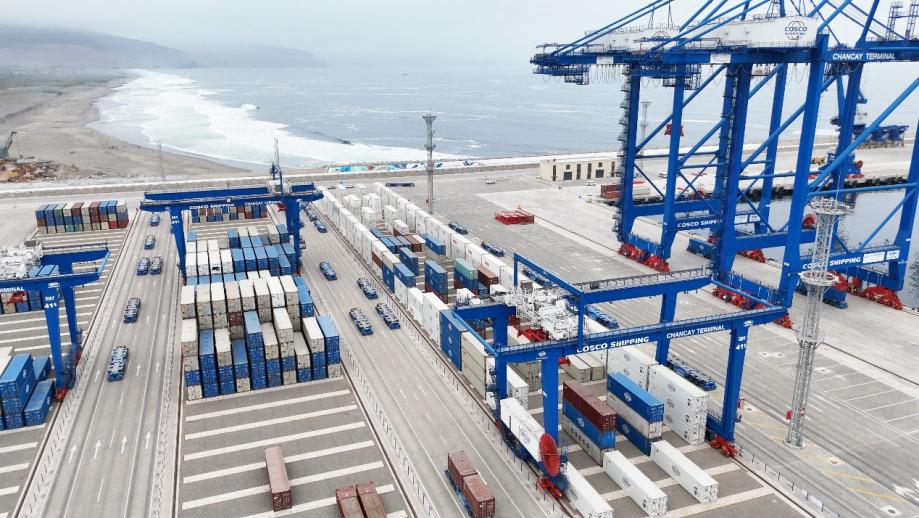China is emerging as a dynamic engine for global services trade growth, demonstrated by surging international interest in tourism and shopping alongside leadership in artificial intelligence and cloud computing.
In the first four months of 2025, China's services exports reached nearly 1.13 trillion yuan ($157.73 billion), an increase of 14.6 percent from a year earlier - a notable achievement amid persistent global trade uncertainty.
This global appeal was recently showcased when more than 3,000 tourism professionals from 74 countries and regions gathered in Shanghai and Chengdu at the invitation of Chinese travel platforms.
"I could watch pandas munching on bamboo all day long!" said David, a travel agency operator from Australia with 20 years of experience while visiting the Chengdu Research Base of Giant Panda Breeding.
Awed by the up-close encounter with China's beloved national treasure, David remarked that his agency plans to introduce panda-themed tours as a highlight of its premium packages. "Since last year, 'China travel' has become the most frequently asked topic among our clients. We expect to bring at least 500 Australian tourists to China next year," said David.
Among the destinations were marketing executives of Dubai's hotels, product managers from major European tour operators, and internationally renowned travel influencers - individuals with significant clout in global tourism circles.
From the dazzling skyline of the Bund area in Shanghai to the serene beauty of the Jiuzhaigou scenic area in southwest China's Sichuan province, from the aroma of hotpot on busy street corners to the bustling pulse of modern commercial centers, this journey - shared by tourism elites from around the world - became a meaningful cultural dialogue.

Foreign tourists explore a rural scenic area in Yixian county, Huangshan, east China's Anhui province, May 21, 2025. (Photo by Xu Jiadong/People's Daily Online)
Trade in travel-related services continued rapid growth momentum, surging 14.7 percent year on year to reach 756.78 billion yuan from January to April this year. Exports soared by a remarkable 79.9 percent, while imports grew by 7.8 percent.
This dramatic rise in outbound travel services is underpinned by several converging factors: streamlined visa-free transit policies, the resumption of international flights, tax-refund policies for overseas tourists, and steady upgrades in China's catering, hospitality, and business travel industries.
According to data from Chinese online travel platform Ctrip, tourism contributed 10 percent to global GDP in 2024 and created 350 million jobs. "Tourism has become an important bridge connecting Chinese services with the global market," said Sun Jie, CEO of Ctrip.
Today, Chinese services are rapidly moving up the global value chain. In the first four months of this year, exports of knowledge-intensive services reached 590.24 billion yuan, a 6.1 percent year-on-year increase.
In June, at Peru's Chancay Port, a flagship project under the Belt and Road Initiative and South America's first smart port, 50 autonomous smart trucks maneuvered through the terminal with precision, transporting containers from cargo ships to designated storage areas along pre-programmed routes. The operation, fully automated and coordinated via an intelligent dispatch system, demonstrated a new model for port logistics.
The port's smart logistics system was developed by Shanghai-based Utopilot. "The first 40 trucks have been operating around the clock in coordination with the central dispatch platform, increasing handling efficiency by 30 percent and reducing empty truck runs by 15 percent," said Yang Lei, general manager of the company's sales and operations center. "All instructions and task assignments are automatically generated, which streamlines port management."
To accommodate the intricate needs of round-the-clock terminal activity, precision parking, and end-to-end scheduling coordination, Utopilot has developed 36 major categories encompassing over 120 safety testing protocols, integrated 80 autonomous driving functions, and created an intelligent fleet management platform capable of supporting over 1,000 vehicles.
The project was recognized as a national best-practice case in technology trade and joined other exemplary cases of Chinese companies advancing international cooperation and export of high-end services.

Photo shows an aerial view of Peru's Chancay Port, South America's first smart port featuring automated operations. (Photo from the WeChat official account of Utopilot)
One such example is Yangling Modern Agriculture International Cooperation Co. Ltd., which has built 14 agricultural demonstration parks in seven Belt and Road partner countries, exporting China's expertise in modern farming practices.
Another standout is WhaleBI, a firm based in Nanjing, east China's Jiangsu province, which has successfully delivered a large-scale cloud computing solution to Saudi Arabia through remote deployment. The project facilitated the digital transformation of local data centers, reducing operational and maintenance costs by approximately 30 percent.
Also on the list is the Dalian Institute of Chemical Physics of the Chinese Academy of Sciences, which developed an industrial-scale, environmentally friendly process for synthesizing ethylenediamine. The technology provides a greener solution to the global chemical industry.
As a new wave of technological revolution and industrial transformation accelerates globally, China is seizing emerging opportunities to boost the competitiveness of its services sector on the world stage.
(Source: Xinhua)
